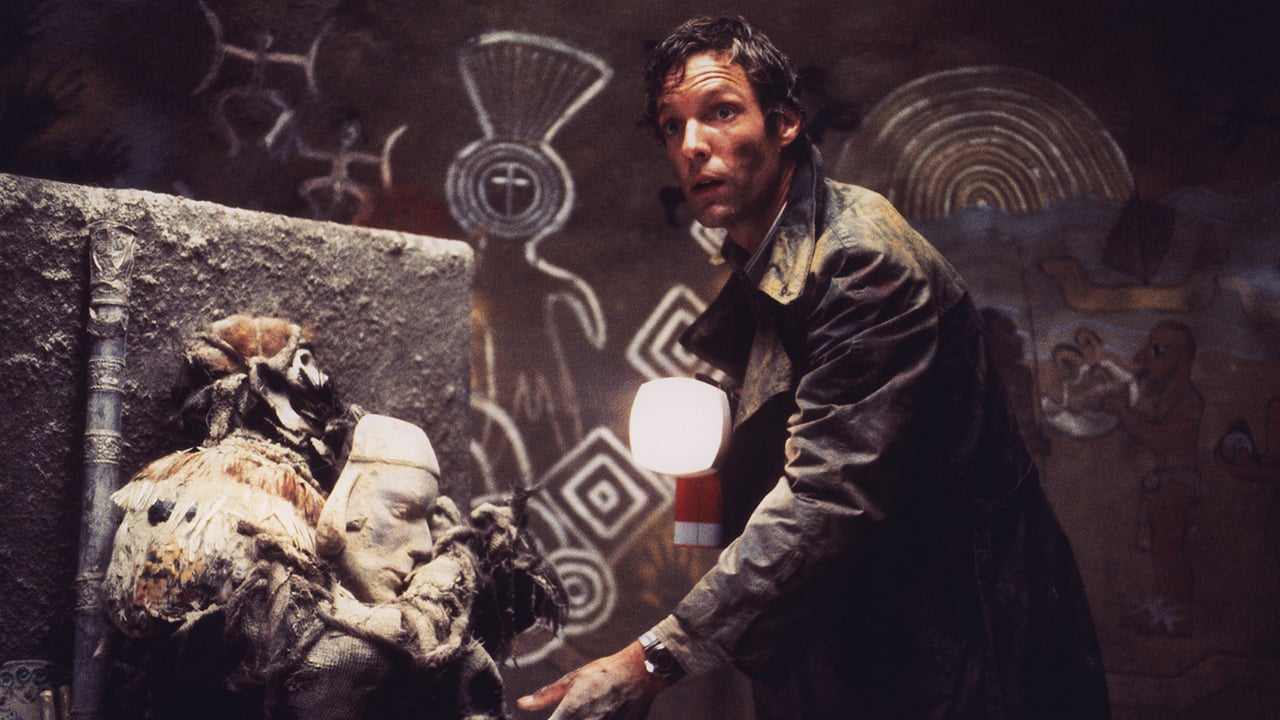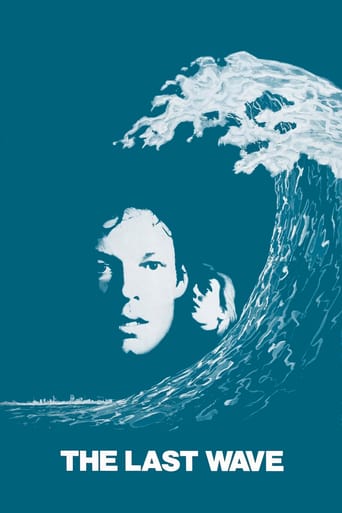

First few times I saw this I saw it as a fun mystical apocalypse I was sorta into apocalypse masochistic thinking in the 70s. Weir does set a hell of a mood.However I see an agenda here...white people disillusioned loosing faith in their own science, religion and mystical rites turn to foreign exotica. Add to this guilt for something their ancestors did. This time its not just to the Brit convicts the anti-hero is descended from but we goes back thousands of years to a white culture that survived an apocalypse, moved to South American and built the Mayan civilization then moved to Australia!Our anti-hero is the sole survivor of Atlantis! Odd that no whites are depicted anywhere in South American Indian art as shown in this movie, perhaps that civilization was wiped out and all evidence?Well back to the agenda, there is a strong apologia for Aborigine ritual murder, (its tribal so its legal!) (Just like the ritual rape of nubile females by tribal elders in the outback as part of their coming of age...now that's really self serving male porkchopery!)Finally the 300 foot wave comes and I guess wipes out Sydney and drowns the whites....so do the aborigines escape or do they sacrifice themselves for the other tribals in the outback?
... View MoreA Sydney lawyer (Richard Chamberlain) defends five Aborigines in a ritualized taboo murder and in the process learns disturbing things about himself.Besides being a great film with a legal angle and a murder mystery angle, this is a great look at different cultures (particularly aborigine culture), how they interact, and the concept of "dream time" which may not be known to white Australians and certainly is unknown in the United States.Peter Weir, more than any other director, has really brought Australia to the world and showed its best sides and why we should care.
... View MoreThe Last Wave is an excellent example of a director taking a subject that I couldn't be less interested in and making it mildly worthwhile. The bland Richard Chamberlain stars as David Burton, a lawyer in Sydney who has to defend five Aborigines against a murder charge. This could have been a compelling thriller, with themes of racial injustice and the works, but instead it focuses so heavily on the fact that the murder was a ritual one by their tribe and it delves deep into the supernatural element of it all.The film goes heavily into this tribe and an epic prophecy about the rain coming and all of that, but I honestly got incredibly lost in the whole thing. Maybe it was my lack of interest in the subject matter that led me to fall so far behind, but I don't think the script did a solid job of getting the knowledge across. So when the epic final sequence came, I was impressed on a technical level but still didn't understand much of what was happening. Some of the blame could be removed from the script though and placed on Chamberlain, who is such a dull lead performer that it would be hard for anyone to focus on this character. There are some moments built around Burton's family that could have been touching, but when you don't care at all about the character it's kind of hard to care about his struggles with his family.Still, I'm giving the film a slightly positive rating thanks to Weir's direction, which despite my lack of interest was able to impress several times. It takes a lot to leave me thinking about a film whose story I couldn't care less about, and that goes to show the skill of Weir's work here. As with all of his films, there are several powerful sequences that are staged with expert precision on his part. Throughout the film Burton experiences terrifying dreams of the Aborigines and these sequences get right underneath your skin and create an eerie sensation for the whole picture. They are appropriately chilling and set up the entire tone, constantly leaving you in suspense. I just wish that the story itself had been half as gripping as the individual sequences.
... View MoreI remember seeing this when it was released, in a theater in Palo Alto, and not expecting much. I mean -- an Australian movie? Chips Rafferty would be in it somewhere. But it finally got to me. Here's a scene. Richard Chamberlain is sitting cross legged on the floor of a shabby apartment in Sidney, facing an Australian aborigine elder named Charlie.Chamberlain: "You were outside my house last night. You frightened my wife. Who are you?" And Charlie at a deliberate pace replies, "Who are you? Who are you? Who are you? Who are you? Who are you?. . . . Are you a fish? Are you a snake? Are you a man? . . . . Who are you? Who are you? Who are you?" It's a stunning scene, shot all in close ups, with Chamberlain's blandly handsome face filling the screen in opposition to Charlie's black, broad-nosed, unyielding bearded visage.The two guys couldn't be more different and this film is the story of how Chamberlain accidentally stumbles from his humdrum lawyerly existence into the inexplicable, almost unspeakable, mysteries of Charlie's world.I don't think I'll go on much about the plot. It's kind of an apocalyptic tale. But I must say, whoever did the research on Australian aboriginal belief systems should get an A plus. They've got everything in here, from pointing the bone to the dream time, a kind of parallel universe in which dreams are real. It's an extremely spooky movie without any musical stings or splendiferous special effects. Charly's world simply begins to intrude into Chamberlain's dreams, for reasons never made entirely clear.If there's a problem with the script, that's it. Nothing is ever made entirely clear. Does Chamberlain, who seems to have some extraordinary rapport with the aborigines, die in the last wave? Do the aborigines? Does the entirety of Sidney? The basic premise is a little hard to accept too, though granted that this is a fantasy. The aborigines are invested with the kind of spiritual power that Americans bestow on American Indians, whereas the fact is that mythology is mythology and while one may be more complex or satisfying -- more elegant and beautiful, if you like -- mythology is still an attempt to transcend an ordinary, demanding, and sometimes disappointing physical existence. The mysticism of Charlie is more convincing that the miracles of Moses in Cecil B. DeMille's "The Ten Commandments," but they're brothers under the skin.But I don't care about that. Taken as a film, this one is pretty good, and it's especially important for marking the celebrity of the director, Peter Weir, and the Australian film industry. This was the first of a great wave of films from the antipodes, some of them raucous, like "Mad Max," and some subtle and dramatic, like "Lantana." I like Weir's stuff, which resembles Nicholas Roeg's in being pregnant with subliminal dread. Try "Picnic at Hanging Rock" for an example of how to make a truly chilling movie with not a drop of blood.
... View More